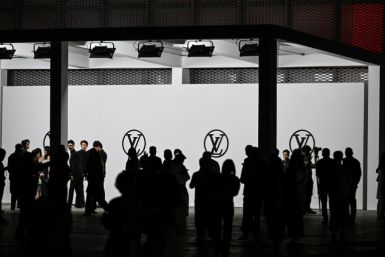Aussie Carriers Reject Surcharge for Overweight Air Passengers
Despite the continuous rise of aviation fuel prices, Australian airlines are not inclined to collect a surcharge on overweight air passengers.
Data from the International Air Transport Association showed that for 2011, jet fuel averaged $127.5 per barrel, which is a 17.8 per cent rise compared to a year ago. The impact of high aviation fuel prices on the global aviation industry's finances is that the total 2011 fuel bill was estimated to reach $160 billion.
In 2000, aviation fuel averaged $100 a barrel, according to commodities global monitor Platts.
The soaring fuel prices led some air carriers to consider as a factor the weight of the passenger along with the traveler's checked luggage. Airlines that serve rural Indonesia, for instance, weigh the baggage and the passenger at the same time.
Some airlines have also collected extra fees for large passengers whose body mass would require the equivalent of two airline seats.
The situation has led former Qantas chief economist Tony Webber to propose that Australian airlines follow the example of other air carriers by slapping a fine or surcharge on overweight travelers in the same way that it collects a penalty for overweight check-in bags.
However, Webber proposed that Aussie airlines add the total weight of the passenger and his baggage and then come up with a critical weight of about 90 to 100 kilogrammes which will serve as benchmark. A weight above the standard would result in a surcharge, while thinner passengers or even a fat traveler without a luggage could enjoy a discount on his ticket price.
Webber pointed out that extra fuel consumed by additional weight of passengers add about $472 to cost of a flight, which ultimately affects the airline's bottom line. He stressed that such a surcharge would not hurt passengers so much since it would only cost them between $5 and $10 extra on a long-haul flight such as the Sydney to London route, including a stopover to Singapore.
However, he admitted that when he was still with Qantas, the company did not favour his proposal. Until now, the embattled airline continues to reject the plan.
"Qantas currently has no plans to introduce a surcharge nor does it have a policy in place for customers of size," a Qantas spokeswoman said. Similar denials were issued by Virgin Australia and Tiger Airways.
Although the idea of a weight tax has been around for several years, aviation experts pointed out that having to weigh passengers would add to the check-in procedures and worsen the long queues at many airports. It would also come at a time that some airlines, including Qantas, are suffering from a restive staff, including ground crew and baggage handlers who would be given that added responsibility.
Even Webber admitted that the proposal could be an embarrassing experience for some travellers.
"For some people it would be humiliating, awful, and so that clearly would have some impact on the brand of the airline," he told ABC.
Improving its brand damaged by the unilateral grounding of crew would likely be high on the agenda of Qantas, which topped a watchdog's list of the 10 PR disasters of 2010 in Australia.
Webber's proposal got both support and criticism from ABC commenters.
"I doubt it would be economically viable for an airline to do this, given the additional costs of weighing people. When you carry sufficient passengers, the weights all even out on average," wrote John R.
He suggested that airlines instead have a range of seat sizes. "It would also seem reasonable that people be prevented from getting a seat too small for their size, so as not to encroach on neighbouring passengers," John R added.
"I can see how overweight (and tall, and extremely muscular) people will feel discriminated against, but if the airline doesn't directly 'discriminate' against them, it is indirectly discriminating against thinner people who are forced to make up the difference in fuel costs even though they're not causing it to be burned faster," commented Si.
In a new column in the Illawarra Mercury on Friday, Webber speculated that one of the reasons why Australian airlines rejected his proposal is they worry about the repercussion of such a move from passengers already harassed by poor service caused by air carrier employee strikes.
Rather than weigh both passengers and their luggage, airlines instead put in place more fuel efficient practices such as the use of lighter materials for meal trolleys, carry less newspapers, wash the aircraft more often to reduce friction, use a slower descent trajectory and shift source of air conditioning power to the plane's electricity supply instead of burning jet fuel upon entry of the plane into the gate.
In the case of Virgin Australia, the air carrier entered in mid-December into a memorandum of understanding with Licella, a biofuel company based in Australia, to support the commercialisation of a new process that would convert biomass into sustainable aviation fuel.
Licella's Catalytic Hydrothermal Reactor (CAT-HTR) uses water technology to produce high-quality bio-crude oil from different kinds of biomass such as agricultural and farm waste. It differs from existing technologies which require several processes to manufacture aviation-quality fuel since the CAT-HTR involves only one step, doing away with the use of costly by-products or pre-treatment.






